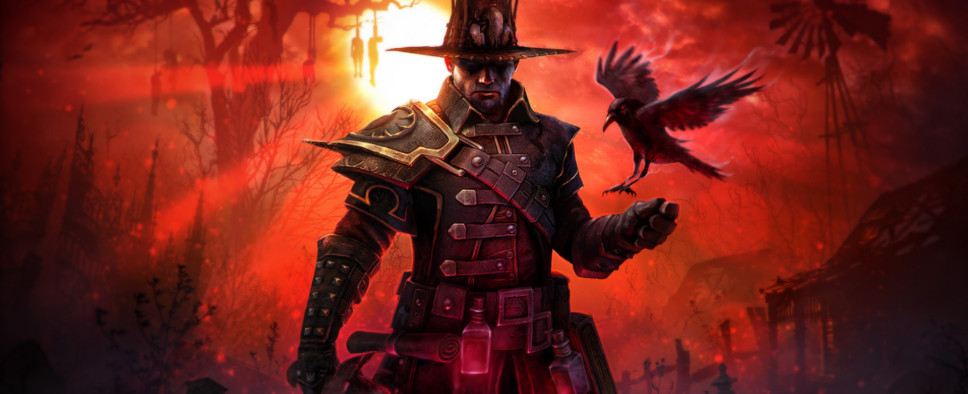Grim Dawn Review
-
Category: ReviewsHits: 17617

Article Index
Campaign
The campaign for Grim Dawn starts off well enough. You see enemies and the world for the first time, you find lots of notes and diary pages that give you background information about what's going on (including doing a nice job of setting up the first major boss), and you meet people you have to make decisions about. Do you trust them and invite them to your base (in a converted prison), or do you keep them away? And when you run into two blacksmiths, which one do you support?
But after the first act, things get a little more mundane. You start seeing a lot of repeats in enemies and environments, it takes forever to explore the maps (which you have to do so you can find all of the desecrated shrines), and the story elements largely disappear. I mean, at one point you have to choose between two factions, but they're so carefully balanced and positioned, and have so little reason given for their existence, that it doesn't seem to make any difference which one you pick. After Act I, Crate pretty much could have just given you one big quest saying, "Go skill stuff until you reach the end boss, and then kill it, too."
Probably a lot of people playing action role-playing games don't care about story elements, but I found the end of the campaign disappointing. You eventually learn what the Ch'thonians are up to -- here's a hint: it's not a coincidence that the names Ch'thon and Cthulhu look cthimilar -- but the Aetherials are a complete mystery. You never learn what they are, what they're up to, or why they're fighting the Ch'thonians. In fact, you could excise them from the campaign completely, and it wouldn't be all that different. I would have liked it if Crate had spent a little more time with world-building rather than just plopping down creatures for you to kill.
To make matters worse, Grim Dawn's campaign is too long. Crate uses a difficulty system roughly the same as the Diablo games, where you have to beat the campaign on one difficulty to unlock the next. The game has four difficulties -- normal, veteran, elite and ultimate -- but the first two are for the same campaign (and you can switch back and forth between them), which means you have to play the campaign three times to max out your character and find the best loot. Plus, there's every reason to try out multiple characters, which means you might want to play the campaign six times or more.
All of that is good, but it took me over 60 hours to complete the campaign with my Warder (Shaman-Soldier) character, and even that play-through wasn't exactly riveting with all of the repeated content. Sometimes I'd be having fun, slicing and dicing my way through enemies, but other times I'd be wondering, "Are we there yet?" And even if it had been all fun, 180 hours for a single character is just too long. Crate made me think of an author who keeps wanting to add more pages to his book, and who really needs an editor to tell him to stop -- not to mention where to make some cuts to improve the pacing of his story.
Or you could look at it this way. An RPG campaign should only be as long as you have content to support it. Since Crate repeats enemies and environments all over the place -- "Oh look, the rotting soldiers are back!" -- ipso facto the campaign is too long. Crate could easily have removed large swathes of the latter acts, including almost all of Act IV with its fog of blood cultist battles, and the campaign -- not to mention the replayability factor -- would have been better for it.
The above being said, there are two things I did like about the campaign. The first is the one-shot dungeons. These dungeons don't allow rift gates, and they can only be entered once per playing session, so they're a challenge. Can you make it all the way to the end and defeat the big, bad boss there, or does something kill you along the way? If you survive then you get some good loot, but if not then you have to start over. The one-shot dungeons are optional, so they're the perfect sort of thing for people who like to grind for better equipment (which should be just about everybody playing the game).
The second thing I liked about the campaign is all of the secrets that it hides. Some of the secrets are simple things, like in several places where you can knock down a wall to reveal a treasure chest. But others are more substantial. At one point if you follow a secret path along a riverbank, then you encounter a unique shopkeeper. At another if you click on an inconspicuous rowboat then it takes you to a hidden island. Secrets are always fun, and I appreciate it when developers add something a little extra to the world.


